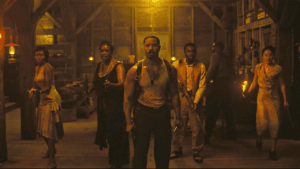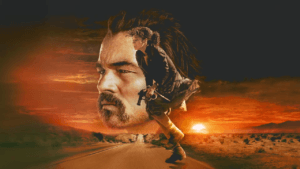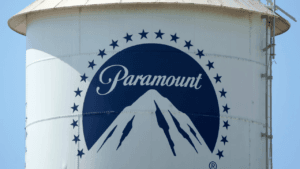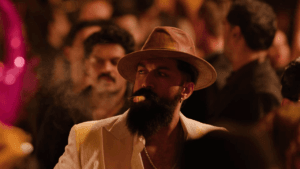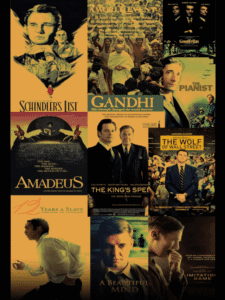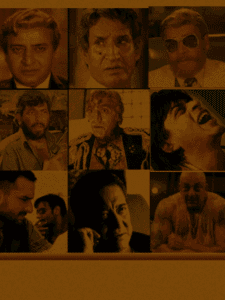Every October, as the leaves fall and the Thames winds grow sharper, London briefly turns into a planet of its own: a city of marquees, red carpets, midnight screenings, and crowds shuffling between Southbank and Leicester Square in search of the next great story. The 69th BFI London Film Festival (LFF), running October 8–19, 2025, has now unveiled its full line-up. What emerges is a program that feels like both a mirror of the current cinematic moment and a map to the futures cinema dares to imagine.
The numbers themselves set the stage: 247 works from 79 countries, comprising 162 feature films alongside shorts, series, and immersive projects. 42% of the program comes from female and non-binary filmmakers, slightly down from 44% last year, but still a commitment that few other A-list festivals match. The festival is smaller in some ways—six world premieres this year, down from 15 in 2024—but the curatorial pulse beats louder, especially with 24 headline galas, a notable rise from last year’s 15. This is a festival tightening its frame but sharpening its vision.
A Murder to Begin, A Myth to End
Opening the festival is Rian Johnson’s Wake Up Dead Man: A Knives Out Mystery. Daniel Craig’s Benoit Blanc returns with his drawl, wit, and detective’s gaze intact, surrounded by a new ensemble. Johnson, once accused of playful pastiche, has now made the whodunnit entirely his own. For London, it’s a slick, star-studded kickoff: cinema as event, puzzle, and pop spectacle.
Closing the circle is Julia Jackman’s 100 Nights of Hero, a queer, fairy-tale drama adapted from Isabel Greenberg’s graphic novel. With Emma Corrin, Nicholas Galitzine, Maika Monroe, and even Charli XCX in the cast, the finale feels contemporary yet mythic. If Johnson begins the festival with murder and irony, Jackman ends it with storytelling itself—myth retold through queerness, wit, and theatrical flourish. The LFF 2025 bookends, then, are about narrative power: who tells the story, and how.
The Weight of Galas: Big Names, Bold Visions
This year’s galas read like a global roll call of cinema’s most daring voices. Among them:
Chloé Zhao’s Hamnet, adapting Maggie O’Farrell’s novel, starring Jessie Buckley and Paul Mescal—a marriage of Shakespearean myth and modern naturalism.
Bradley Cooper’s Is This Thing On?, his third feature as director, starring Will Arnett and Laura Dern, inspired by the life of Liverpudlian comedian John Bishop.
Guillermo del Toro’s Frankenstein, expected to deliver gothic romance and visionary monsters.
Luca Guadagnino’s After the Hunt, another hotly anticipated American drama.
Park Chan-wook’s No Other Choice, bringing South Korean rigor and sensuality to London.
Richard Linklater, a double presence with Nouvelle Vague and Blue Moon, spanning Cannes and Berlinale premieres.
Jafar Panahi’s It Was Just An Accident, his Palme d’Or winner, carrying a political charge that will resonate deeply in the festival halls.
Lynne Ramsay’s Die, My Love, raw and intimate, alongside Joachim Trier’s Sentimental Value and Kelly Reichardt’s The Mastermind—a trifecta of auteurs examining fragile relationships.
Add to this Edward Berger’s Ballad of a Small Player, Nicholas Hytner’s The Choral, Oliver Hermanus’ The History of Sound, and Noah Baumbach’s Jay Kelly. Rarely has a London Film Festival looked this stacked with prestige, each title demanding attention.
Competitions: The Pulse of Discovery
The Official Competition stretches from Lucrecia Martel’s Landmarks, a multinational production spanning Argentina, the US, Mexico, and Europe, to Nia DaCosta’s Hedda, Mona Fastvold’s The Testament of Ann Lee, and Kaouther Ben Hania’s The Voice of Hind Rajab. It’s a slate that thrives on formal daring—whether Martel’s lush atmospherics, DaCosta’s sharp psychological insight, or Ben Hania’s political ferocity.
The First Feature Competition showcases new UK voices—Joy Gharoro-Akpojotor’s Dreamers, Imran Perretta’s Ish, and Akinola Davies’ My Father’s Shadow—while also spanning Jordan, Cambodia, and the Philippines.
The Documentary Competition includes Jim Jarmusch’s Father Mother Sister Brother, Deming Chen’s Always, and Ed Sayers’ Super Nature, a UK world premiere promising ecological awe.
And then there’s Dare, Debate, Thrill, Cult, and Journey—festival strands that blur the boundaries between genre and experimentation. From Kristen Stewart’s The Chronology of Water to Clint Bentley’s Train Dreams to Lav Diaz’s Magellan, the program is an atlas of cinematic edges.
World Premieres: Local Stories, Global Resonance
Though fewer in number, the six world premieres carry weight. Chief among them:
Rowan Athale’s Giant, with Amir El-Masry and Pierce Brosnan, dramatizing boxer Prince Naseem Hamed’s rise from Sheffield’s streets.
James Lucas’ Moss & Freud, with Ellie Bamber as Kate Moss and Derek Jacobi as Lucian Freud, reconstructing a pivotal early-2000s cultural moment.
Ed Sayers’ Super Nature, as noted, in the documentary field.
High Wire by Calif Chong, More Life by Bradley Banton, and Jackman’s 100 Nights of Hero closing gala round out the six.
Each feels distinctly London: local in setting or authorship, yet outward-looking in resonance.
Screen Talks and Industry: Voices That Shape Cinema
If the films are the heartbeat, the Screen Talks are the voice. This year’s lineup includes Daniel Day-Lewis (a rare public appearance), Yorgos Lanthimos, Richard Linklater, Jafar Panahi, Lynne Ramsay, Tessa Thompson, and Chloé Zhao. Conversations not just about films, but about how cinema breathes in the world right now.
The LFF Expanded industry day on October 15, supported by Southbank Centre, extends this to immersive storytelling, gaming, and interactive work. It’s a reminder that the LFF is not only about films on screens but also about the expanding definitions of the medium.
A Festival That Moves Beyond London
Once again, the festival spreads beyond the capital. Alongside the BFI Southbank and Royal Festival Hall, LFF On Tour visits 11 UK-wide partner venues, including the National Science and Media Museum in Bradford, marking its City of Culture year, and the Filmhouse in Edinburgh. The LFF, then, is not just London’s but Britain’s—and, in many ways, the world’s.
London Film Festival 2025: The State of Cinema in 2025
In the words of festival director Kristy Matheson: “We invite audiences to craft their own festival journey… brimming with formal innovations, provocations and essential roadmaps for navigating the world around us.” This isn’t mere PR—it’s the essence of this year’s lineup.
From Benoit Blanc’s puzzles to queer fairy tales, from boxers rising in Sheffield to Kate Moss on a Freud canvas, from documentary experiments to genre subversions—LFF 2025 feels like cinema reflecting the world’s fractures and desires back at us.
This year, the London Film Festival is not just programming films. It’s programming possibilities. And for those eleven days in October, London once again becomes a planet of films.





